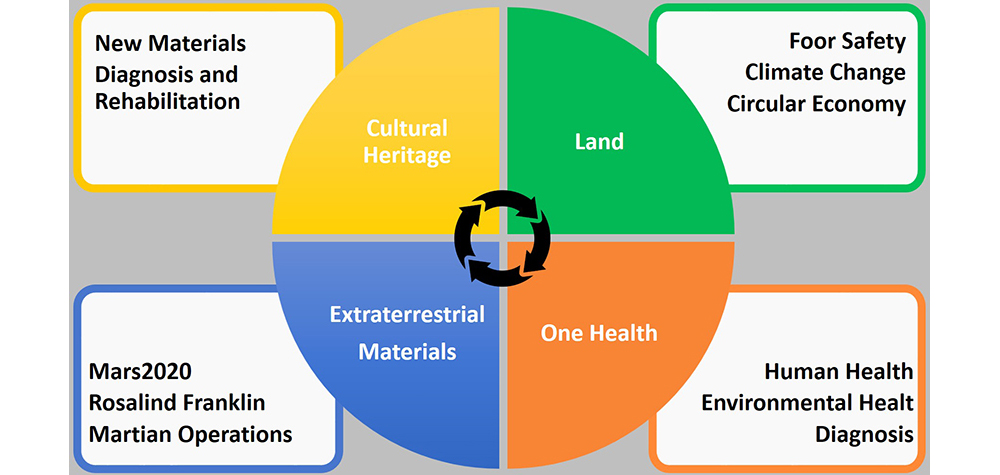IBeA Research Group (2024)
The IBeA Research Group (Ikerkuntza eta Berrikuntza Analitikoa - Analytical Research and Innovation), mostly belonging to the Department of Analytical Chemistry of the UPV/EHU, developed the project "Environmental Analytical Chemistry" in the call 2007 (ref. IT-245-07), for the six-year period 2007-2012, the project "Analytical Research and Innovation" in the call 2012 (ref. IT-742-13) for the six-year period 2013-2018, the project "IBeA, Ikerkuntza eta Berrikuntza Analitikoa” in the 2018 call (ref. IT-1213-19) for the three-year period 2019-2021 and for the four-year period 2022-2025 with the project “IBeA, Ikerkuntza eta Berrikuntza Analitikoa” (ref. IT-1446 -22). All of these projects were rated A and obtained funding to complete the group's activities.
Research Areas
IBeA's activities are grouped around four areas:
- Territory (Climate Change, Circular Economy and Food Security)
- One Health (Human Health and Environmental Health)
- Cultural Heritage (Diagnosis and Rehabilitation, New Materials)
- Study of extraterrestrial materials (Mars Operations, Mars2020 and Rosalind Franklin)

In all these activities, the main objectives to take into account will be:
- Develop quality analytical processes and methodologies for accurate and effective diagnosis that facilitate decision making, progress in the interpretation of alteration processes and the development of appropriate therapies, as well as for the development of new instrumentation.
- Train scientists and professionals in a multidisciplinary work environment and collaborate in the training of scientists in related areas of knowledge.
Many of these activities share common Research Lines, which IBeA has been developing for years:
- Food resources and food security
- Development of instrumentation and analytical methodologies that include elements of artificial intelligence
- Environmental and territorial sustainability
- Human and environmental health
- Diagnosis and Rehabilitation of Tangible Cultural Heritage
- Study and understanding of (bio)geochemical processes and their alterations in terrestrial and extraterrestrial materials, with special attention to Mars
These activities are aligned with the priorities established by the Basque Government in the Science, Technology and Innovation Plan 2030, with the RIS3 specialization strategy and with the sustainable development objectives (SDG).
In relation to the pillars included in PCTI2030, our contributions are clearly directed towards scientific excellence (pillar I) and open innovation (pillar III) so that we can consolidate the talent of our group of researchers.
In relation to the RIS3 strategy, the projects developed by IBeA are aligned with the following priorities:
- Smart industry
- New materials and their manufacturing processes
- Additive manufacturing
- Big Data/Cloud Computing
- Personalized health
- Personalized medicine (diagnosis, prognosis, monitoring and treatment)
- Healthy nutrition
- Safe and quality food – new conservation technologies
- Foods with new benefits
- Creative Basque Country
- Cultural heritage
- Sustainable cities
- Comprehensive rehabilitation and urban regeneration
- New sustainable construction materials (insulating, renewable, bio and nano materials)
- Eco-innovation
- Waste recovery (includes renewable raw materials)
- Pollution control and reduction technologies (Cleantech)
- Water and soil: treatment, recovery, monitoring
In relation to the Sustainable Development Goals (SDGs), IBeA is aligned with some of the goals of the following goals: 3 (health and well-being), 4 (quality education), 6 (clean water and sanitation), 11 (cities and sustainable communities), 12 (responsible production and consumption), 13 (climate action), 14 (underwater life) and 15 (terrestrial ecosystems).

